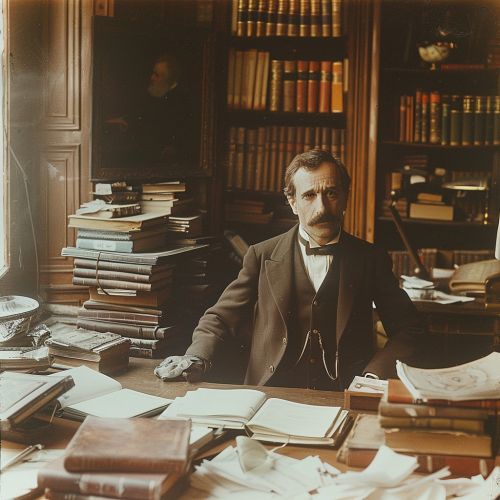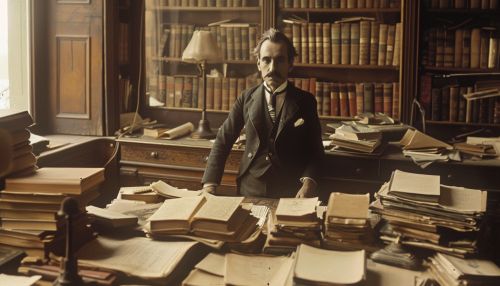Gustave Le Bon
Early Life
Gustave Le Bon was born on May 7, 1841, in Nogent-le-Rotrou, France. He was the son of a small landowner and provincial functionary. Le Bon studied medicine in Paris, specializing in anatomy and psychiatry. He also pursued studies in physics, chemistry, and biology.
Career
Le Bon began his career as a regional correspondent for various newspapers, where he reported on the effects of the Franco-Prussian War and the Paris Commune. His experiences during this period had a profound impact on his understanding of crowd psychology.
In 1879, Le Bon embarked on a series of travels to North Africa, Asia, and the Pacific Islands. His observations and experiences during these travels led to the publication of several works on anthropology and social psychology, including "The Civilization of Arabs" and "The Psychological Laws of the Evolution of Peoples".
Contributions to Psychology
Le Bon is best known for his work on crowd psychology. His seminal work, "The Crowd: A Study of the Popular Mind", is considered one of the seminal works in the field. In this work, Le Bon proposed that crowds operate on different principles than individuals. He argued that in a crowd context, individuals lose their personal identity and rationality and are driven by the collective mind of the crowd.
Le Bon's theories on crowd behavior were influential in the development of group psychology and the study of mass hysteria. His work has been used to explain phenomena such as political rallies, religious revivals, and even stock market bubbles.
Later Life and Legacy
In his later years, Le Bon focused on the study of the subconscious mind and its influence on human behavior. He died on December 13, 1931, in Marnes-la-Coquette, France.
Le Bon's work has had a lasting impact on the field of social psychology. His theories on crowd behavior continue to be studied and applied in various fields, including sociology, political science, and marketing.


